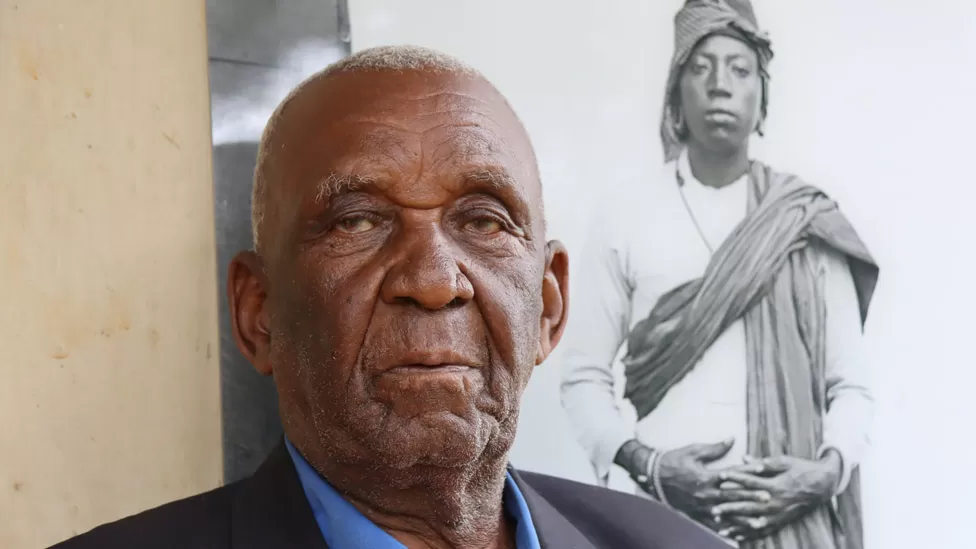The Tanzanians searching for their grandfathers’ skulls in Germany

123 years ago, a German colonial force hanged his grandfather, Mangi Meli, along with 18 other chiefs and advisors.
A German minister has told the his country is ready to apologize for the executions in what is now northern Tanzania.
Several other descendants have also searched for the remains, and recently, DNA research revealed that two of the skulls of those killed have been identified among thousands in a museum collection.
On the lower slopes of Mount Kilimanjaro, acacia trees are rare. Among the dense vegetation, its twisting branches stand out above the steep road.
Originally, it shaded a market for the villagers of Tsudunyi, a part of Old Moshi, who lived off the fertile land and enjoyed the cooler temperatures at higher altitudes.
It was this focal point for the community that became the scene of a great tragedy. Despite the peace of the natural surroundings today, its impact has reverberated through the centuries.
According to the descendants, the 19 men were hanged one-by-one here on 2 March 1900. Their trial had been hastily conducted the day before, accusing them of plotting to attack German colonial forces.
At the Berlin Conference of 1884-1885, Germany formalized its claim to this part of the continent. People living in Africa had no say in the division of Africa between the European powers.
